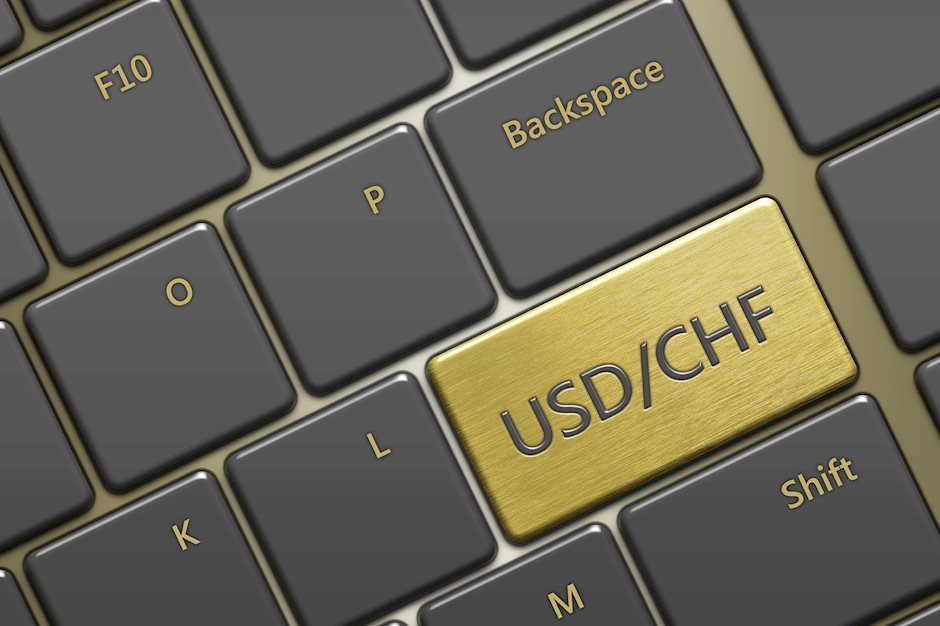USD/CHF depreciates further to near 0.8700 following Swiss inflation data
- USD/CHF extends its losing streak following the release of Swiss Consumer Price Index data on Friday.
- Swiss CPI rose by 1.3% as expected to be consistent in July.
- The US Dollar loses ground ahead of employment data including Nonfarm Payrolls and Average Hourly Earnings.

USD/CHF holds its losses for the fourth successive session following the Swiss Consumer Price Index (CPI) data released on Friday. Swiss Federal Statistical Office declined by 0.2% month-over-month in July, as expected. Meanwhile, inflation year-over-year rose by 1.3% as expected, remaining consistent as compared to the previous rise. The USD/CHF pair trades around 0.8710 during the Asian session.
On Wednesday, the Swiss investors’ sentiment index dropped to 9.4 in June, from June’s 17.5 readings. Despite the decline, the index remains in positive territory, suggesting that the outlook continues to be moderately optimistic.
The downside of the USD/CHF pair could be attributed to the tepid US Dollar (USD) due to the dovish sentiment surrounding the Federal Reserve’s (Fed) policy outlook. The CME's FedWatch Tool shows that traders are fully anticipating a 25-basis point rate cut on September 18.
Additionally, the latest manufacturing and labor market data have erected a complex situation involving an economic slowdown in the United States (US) and increased expectations for a Federal Reserve rate cut. If the economic downturn becomes too severe, it could negatively impact market sentiment, rendering any rate cuts from the Fed irrelevant.
US ISM Manufacturing Purchasing Managers Index (PMI) tumbled to an eight-month low of 46.8 in July, compared to the previous 48.5 reading and the forecasted move up to 48.8. US Initial Jobless Claims for the week ended July 26 rose to 249K from the previous week’s 235K, exceeding the forecast uptick to 236K.
Traders are likely to closely watch the upcoming July US Nonfarm Payrolls and Average Hourly Earnings data, set to be released later in the North American session, for insights into the US labor market.
Swiss Franc FAQs
The Swiss Franc (CHF) is Switzerland’s official currency. It is among the top ten most traded currencies globally, reaching volumes that well exceed the size of the Swiss economy. Its value is determined by the broad market sentiment, the country’s economic health or action taken by the Swiss National Bank (SNB), among other factors. Between 2011 and 2015, the Swiss Franc was pegged to the Euro (EUR). The peg was abruptly removed, resulting in a more than 20% increase in the Franc’s value, causing a turmoil in markets. Even though the peg isn’t in force anymore, CHF fortunes tend to be highly correlated with the Euro ones due to the high dependency of the Swiss economy on the neighboring Eurozone.
The Swiss Franc (CHF) is considered a safe-haven asset, or a currency that investors tend to buy in times of market stress. This is due to the perceived status of Switzerland in the world: a stable economy, a strong export sector, big central bank reserves or a longstanding political stance towards neutrality in global conflicts make the country’s currency a good choice for investors fleeing from risks. Turbulent times are likely to strengthen CHF value against other currencies that are seen as more risky to invest in.
The Swiss National Bank (SNB) meets four times a year – once every quarter, less than other major central banks – to decide on monetary policy. The bank aims for an annual inflation rate of less than 2%. When inflation is above target or forecasted to be above target in the foreseeable future, the bank will attempt to tame price growth by raising its policy rate. Higher interest rates are generally positive for the Swiss Franc (CHF) as they lead to higher yields, making the country a more attractive place for investors. On the contrary, lower interest rates tend to weaken CHF.
Macroeconomic data releases in Switzerland are key to assessing the state of the economy and can impact the Swiss Franc’s (CHF) valuation. The Swiss economy is broadly stable, but any sudden change in economic growth, inflation, current account or the central bank’s currency reserves have the potential to trigger moves in CHF. Generally, high economic growth, low unemployment and high confidence are good for CHF. Conversely, if economic data points to weakening momentum, CHF is likely to depreciate.
As a small and open economy, Switzerland is heavily dependent on the health of the neighboring Eurozone economies. The broader European Union is Switzerland’s main economic partner and a key political ally, so macroeconomic and monetary policy stability in the Eurozone is essential for Switzerland and, thus, for the Swiss Franc (CHF). With such dependency, some models suggest that the correlation between the fortunes of the Euro (EUR) and the CHF is more than 90%, or close to perfect.
Author

Akhtar Faruqui
FXStreet
Akhtar Faruqui is a Forex Analyst based in New Delhi, India. With a keen eye for market trends and a passion for dissecting complex financial dynamics, he is dedicated to delivering accurate and insightful Forex news and analysis.

















